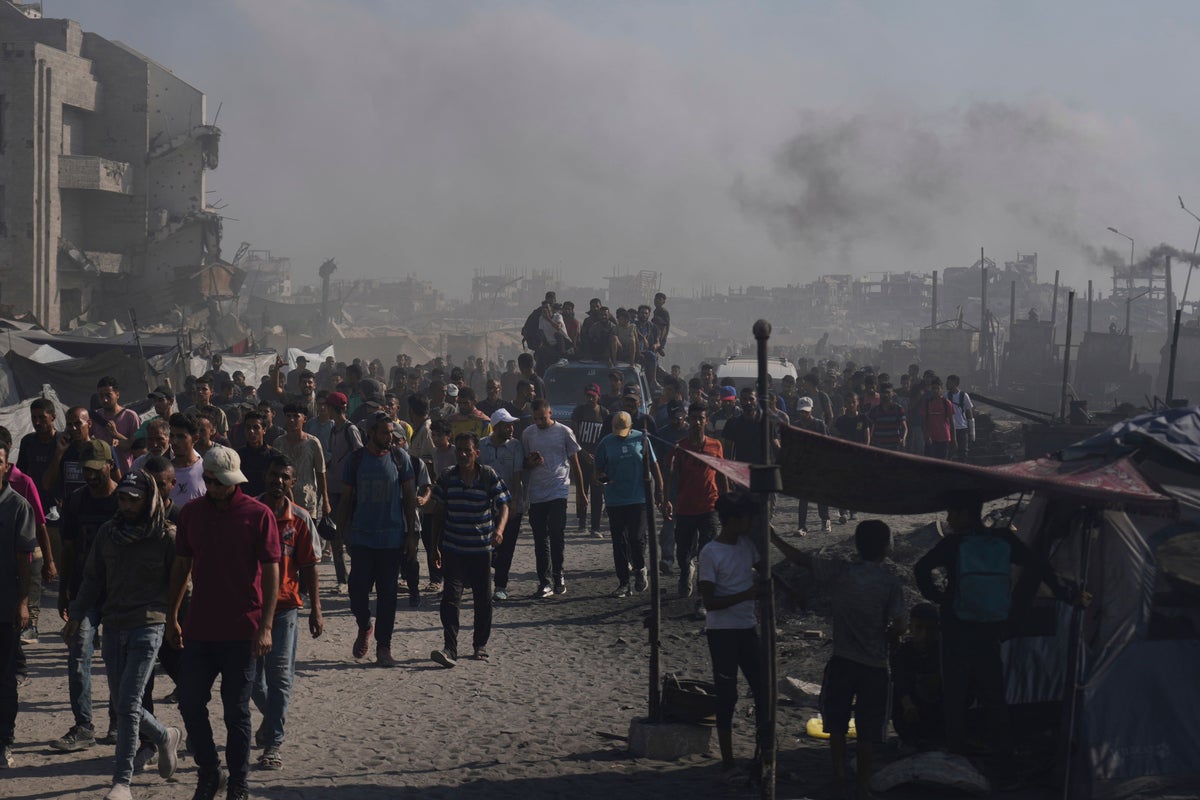
Sir Keir Starmer has suggested the UK will play a role in dropping aid into Gaza by air, as he faces calls from 221 cross-party MPs to recognise a Palestinian state.
Israel said on Friday it will allow airdrops of aid by foreign countries into Gaza to alleviate starvation in the Palestinian territory.
The Prime Minister said the UK will “do everything we can to get aid in via this route”.
Sir Keir meanwhile faces growing calls to recognise a Palestinian state immediately, amid mounting global anger over the starving population in Gaza.
Some 221 MPs from Labour, the Conservatives, Liberal Democrats, SNP, Greens, Plaid Cymru, SDLP and independents, have signed a letter calling on the Government to take the step at a UN meeting next week.
France’s president Emmanuel Macron announced his nation would formally recognise Palestine at the UN General Assembly in September, leading UK politicians to question whether the British Government would follow suit.
US President Donald Trump suggested Mr Macron’s announcement “doesn’t matter” as he left America for a visit to Scotland.
But Sarah Champion, the senior Labour MP who organised the letter by parliamentarians, said recognition “would send a powerful symbolic message that we support the rights of the Palestinian people”.
Other senior Commons figures who signed the letter include Labour select committee chairs Liam Byrne, Dame Emily Thornberry and Ruth Cadbury.
Lib Dem leader Sir Ed Davey, as well as Tory former minister Kit Malthouse, and Sir Edward Leigh – Parliament’s longest-serving MP – also signed it.
The majority of those who have signed, 131, are Labour MPs.
In a video statement released on Friday, Sir Keir made plain his desire for a ceasefire in the war.
He said: “I know the British people are sickened by what is happening. The images of starvation and desperation are utterly horrifying.
“The denial of aid to children and babies is completely unjustifiable, just as the continued captivity of hostages is completely unjustifiable.”
Signalling the UK is willing to help get aid into Gaza via air, the Prime Minister added: “News that Israel will allow countries to airdrop aid into Gaza has come far too late, but we will do everything we can to get aid in via this route.
“We are already working urgently with the Jordanian authorities to get British aid on to planes and into Gaza.”
Children who need specialist medical treatment will be evacuated from Gaza to the UK, Sir Keir added.
The Prime Minister also called for an international coalition to “end the suffering” in Gaza, similar to the coalition of the willing aimed at helping Ukraine.
Sir Keir had earlier responded to calls for the recognition of a Palestinian state, insisting such a move needed to be part of the “pathway” to peace in the Middle East, which he and allies are working towards.
He added: “Recognition of a Palestinian state has to be one of those steps. I am unequivocal about that. But it must be part of a wider plan which ultimately results in a two-state solution and lasting security for Palestinians and Israelis.”
In a statement released on Friday alongside the leaders of France and Germany, the Prime Minister urged Israel to stop restricting the flow of aid into Gaza.
Charities operating in Gaza have said Israel’s blockade and ongoing military offensive are pushing people there towards starvation, warning that they are seeing their own workers and Palestinians “waste away”.
The Prime Minister will meet the US president during his trip to Scotland, where he arrived on Friday evening.
US-led peace talks in Qatar were cut short on Thursday, with Washington’s special envoy Steve Witkoff accusing Hamas of a “lack of desire to reach a ceasefire”.
The deal under discussion is expected to include a 60-day ceasefire in which Hamas would release 10 living hostages and the remains of 18 others in phases in exchange for Palestinians imprisoned by Israel.
Aid supplies would be ramped up and the two sides would hold negotiations on a lasting truce.
